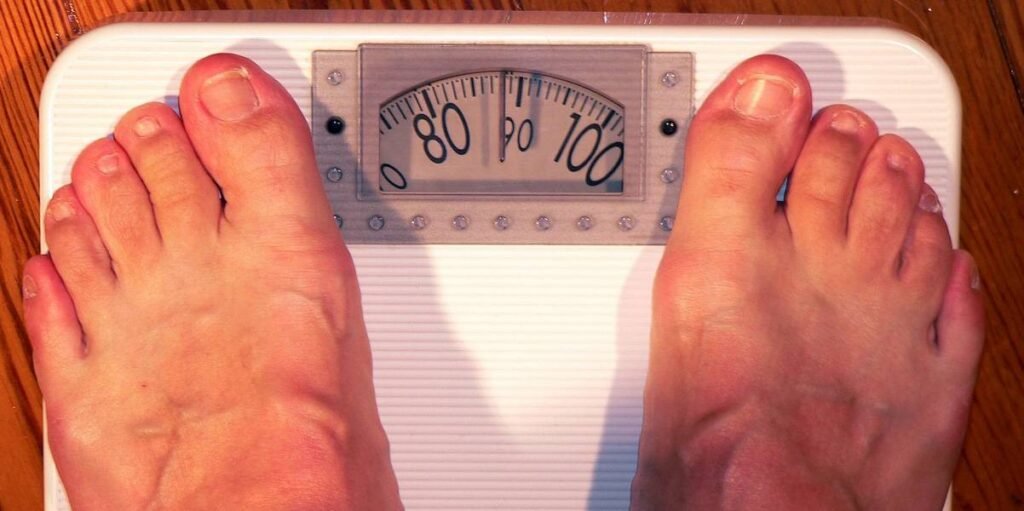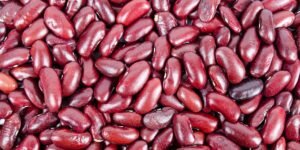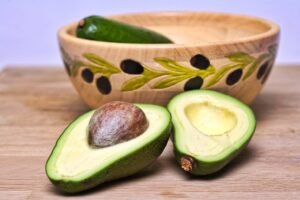
Does Body Fat and Obesity Mean Unhealthy?
This article is to discuss body fat and obesity. The World Health Organization pointed out that “obesity is a chronic disease” and called for attention to the health hazards of obesity. Compared with healthy weight people, obese people have more than three times the risk of developing diabetes, metabolic syndrome and dyslipidemia, and double the risk of developing high blood pressure, cardiovascular disease, knee arthritis and gout. Studies have confirmed that when an obese person loses more than 5% of his body weight (such as a 90 kg adult, a reduction of 5 kg), it can bring many benefits to health, and obesity-related diseases such as hypertension and diabetes will be improved.
Body Fat and Obesity
Concerning obesity, is it so awful to talk about? Does body fat mean unhealthy? We would like to recommend a book called “Nature Wants Us to Be Fat”. This book will definitely and completely change your concept of obesity and body fat. The author of this book is Dr. Richard Johnson, an internationally renowned scholar who has studied obesity for more than 20 years. Dr. Richard Johnson is a famous nephrologist, and his father is also in the medical field.
This book was published in February 2022 and soon has attracted the attention of all walks of life. “Nature Wants Us to Be Fat” received 4.6 out of 5 points on the Amazon website. Many authors of best-selling books strongly recommend this book, including Dr. Jason Fung, the author of “Diabetes Code”, Dr. Robert Lustig, the author of Metabolical, and Dr. David Perlmutter, the author of Grain Brain and Drop Acid.
Dr. Richard Johnson Website: https://drrichardjohnson.com/
Every book has a mission, and every author wants to help readers solve problems. The problems Dr. Johnson wants to solve are obesity, which is spreading around the world.
Why do scholars continue to write books about weight loss every year? One reason for this is that more and more people in the medical profession believe that the current direction of the global response to obesity is a big problem. This directional problem is that obesity is obviously a problem caused by inappropriate diet and living habits, but we have invested a lot of resources in the research of weight-loss drugs and weight-loss injections.
Obesity in the United States
In 1890, only about 3% of the adults in the United States were obese. By 2022, 36.2% of adults in the United States were obese. The total annual expenditure on obesity in the United States is as high as 2.8 billion dollars. Why spend so much money, but still can’t solve the problem?

Because most of the money is not spent on public education, but on the treatment of diseases caused by obesity. Let’s see how much money is spent every year on treating chronic diseases caused by obesity, and how much money is spent on weight loss and slimming programs. Please find out how much money is spent on weight-loss meal replacements and nutritional supplements? You will be totally shocked with the huge figure. But when you ask a person the meaning of obesity? How to solve the problems of obesity? Not many people will give you the right answers. To fundamentally solve the problem of obesity for society is public education.
Three years ago, I was seriously overweight, and I have diabetes. I have tried to lose weight, and I lost 52 pounds in three years, so I understand the feeling of losing weight. I just hope anyone who wants to lose weight fully understands how to help themselves. To be honest, no one can help them if they are not disciplined on their diet. About “Nature Wants Us to Be Fat”, the author Dr. Richard Johnson believes each of us has a “Survival Switch”. When the survival switch is turned on, our body will have a series of reactions and behaviors, including feeling hungry, craving desserts, looking for food everywhere, the appetite will increase greatly, and the basal metabolism will slow down. The final result is that the body accumulates fat. The original intention of the “Survival Switch” is to help animals and humans in nature resist famine, but in a modern society where food supply is generally sufficient, “Survive Switch” becomes the “Fat Switch”. In addition to fructose and foods with a high glycemic index, the reason why many people fail to lose weight is actually because of “salt” and “umami food”. After reading this book seriously, you are capable of becoming a weight-loss expert.
Three Cases of Body Fat and Obesity
Many fitness people want to have more muscle and less fat, but is the less body fat the better? Dr. Richard Johnson in his book gave three cases about his concept of body fat.
The first case was when he worked at the University of Washington Hospital in Seattle. He used to go to the gym to do weight training two or three days a week. He often met a new friend who was comparable to “Mr. Olympia”. His friend’s real age is ten years older than Dr. Johnson, but his appearance is ten years younger than him. Once, this friend was admitted to the hospital because of pneumonia. When the author visited him, he found he was weak and lost a lot of muscle in just a few days. Worst of all, he looked haggard without energy. When a person is sick, the body needs a lot of energy to fight the bacteria. If there is not enough body fat, then the body is likely to burn muscle.
The second case is Mahatma Gandhi, the founding father of India. In January 1948, Gandhi aimed at reuniting Hindus and Muslims of India. In New Delhi and started a hunger strike. Gandhi had hunger strikes 18 times in his life. The longest time he tried was 21 days. 1948 was his last hunger strike. At that time, Gandhi was 77 years old and his height was 5 feet 5 inches. He is about 1.65 meters tall and weighs only about 100 pounds. His body mass index at that time was only 16.7 which is too light. On the sixth day of Gandhi’s hunger strike, he was very weak. His doctor was very worried, but Gandhi’s hunger strike consciousness is still very firm. Finally, the Hindu, Muslim and Sikh leaders reached a reconciliation with the help of the government.
The third case was a 27-year-old Scottish man named Angus Barbieri. He fasted for a total of 382 days. He drinks water, tea, black coffee, and supplements to maintain his life. Why was he able to fast for more than a year without any problems? Because his weight before fasting was as high as 450 pounds, and he lost 275 pounds through fasting. Too much body fat, we are afraid of chronic diseases, and too little body fat, we are afraid of sudden illness in which muscles will be lost rapidly. What is the best amount of body fat? How much body fat is the most suitable for you?
Body Fat of Animals
Animals in nature will gain weight in a planned way, so as to survive before winter comes. Emperor Penguins living in Antarctica will start to accumulate fat before winter, so that their body size will nearly double. Male Emperor Penguins fast for almost four months while their eggs are incubating. During this period, it will rely on the fat accumulated before to provide energy.
There’s a species of fish in the Amazon basin called Myleus Pacu. Although the appearance of the animals is fierce and evil, they are actually vegetarians, as they like to eat fruit. When the rainy season comes, the Amazon River’s water level can rise by 30 to 40 feet. Rivers will cover up to 27,000 square miles of the Amazon forest. Myleus Pacu will eat a lot of fruit that falls from the tree. In a short period of time, the body fat increases by up to 3 times. Even if there is nothing to eat for six months, the Myleus Pacu can still survive.
In addition, migratory birds also accumulate fat before migrating. A migratory bird called the Bar-tailed Godwit can fly up to 7,000 miles non-stop for eight days. It can fly from Alaska to New Zealand. So fat is very important for animals that live in nature.
Overweight and Mortality
Is fat only bad for human beings? Of course, not. In 2010, a decade-long study in Australia found that the elderly aged 70 to 75 who were overweight, with a body mass index between 25 and 29.9, their mortality rate is lower than the normal weight group, with a body mass index of 18.5 to 24.9.
A 2016 Danish study over 30 years found that:
In 1976-78, the population with a body mass index of 23.7 had the lowest death rate
In 1991-94, the population with a body mass index of 24.6 had the lowest death rate
In 2003-13, the population with a body mass index of 27.0 had the lowest death rate
This proves that in some cases, the survival rate of overweight people is actually higher than normal weight people. This phenomenon is the obesity paradox, which includes cancer, heart disease, kidney failure, people over seventy, etc. One thing worth noting is that it actually refers to being overweight, not obese. For Europeans, being overweight means a body mass index of 25-29.9, and for Asians, being overweight means a body mass index of 23-24.9. These studies all show that being overweight is not completely without benefits, and some studies have shown that being thinner may lead to a longer life.
In 2017, a study on Macaques found that by restricting calorie intake to 70% of normal, male Macaques can live to about 28 years old, and female Macaques can live to about 30 years old. They live longer than the average Macaque, which is about 26 years old. Due to this research, there is a so-called 70% full meal per meal, which is good for longevity.
Body Fat Obesity and Longevity
Many centenarians live in Okinawa, Japan. Study finds that the average Okinawan eats two-thirds as much as Japanese living elsewhere. On average, their body fat is relatively low, but they live a long life. The author thinks there is a price to pay for hoarding fat in the body
Dr.Johnson believes there is a price to be paid for hoarding fat in the body. We all have a lot of mitochondria in our human cells. Mitochondria are the power plants of cells by burning glucose
to produce ATP Adenosine Triphosphate to provide energy for cells to use. To store fat, the mitochondria need to bear a certain amount of oxidative stress. Long-term exposure to oxidative stress in the body will accelerate aging. So the less you eat, the less body fat you have, the better? Here’s one thing we have to figure out first. Macaque research is carried out in a laboratory environment. The researchers will provide food for macaques at regular intervals. If one day we send the Macaques to the wild, they will probably starve to death very quickly.It is all because their body fat reserves are not enough to survive.
Body fat is not only for survival, it is actually for reproduction. Pregnant women need at least 22% body fat to allow healthy growth of the fetus. Women of reproductive age, if their body fat drops below 15%, like the anorexics, ballet dancers or marathon runners, have a chance to stop ovulating. For animals in nature, fat is like the bank deposits of our modern people, it is used for emergencies. In fact, there is no body fat percentage suitable for everyone in the world.
If a person lives in a place where food supply is plentiful and famine is rare, reducing calorie intake and maintaining a low body fat rate is helpful in delaying aging. There is a book called “The Longevity Diet” by Dr. Valter Longo PhD. The author suggests a vegetarian diet is a relatively low-calorie diet. If a person has chronic diseases or those over 70 years old it will be better off with a small amount of fat reserves. I suggest the amount of subcutaneous fat is not important. The most important thing is not to let yourself have a fatty liver. Remember, when I was overweight with belly fat and diagnosed with fatty liver. My blood sugar was terrible, with HbA1c over 7% and fasting blood sugar over 9 mmol/L. I changed my diet with no sugar and less carb, then my weight, which has reduced from 209 lbs to 156 lbs with my belly fat completely disappeared.
Written by Matthew Chan of Fairview Life Team
Book Recommodation – Click The Book to Buy













